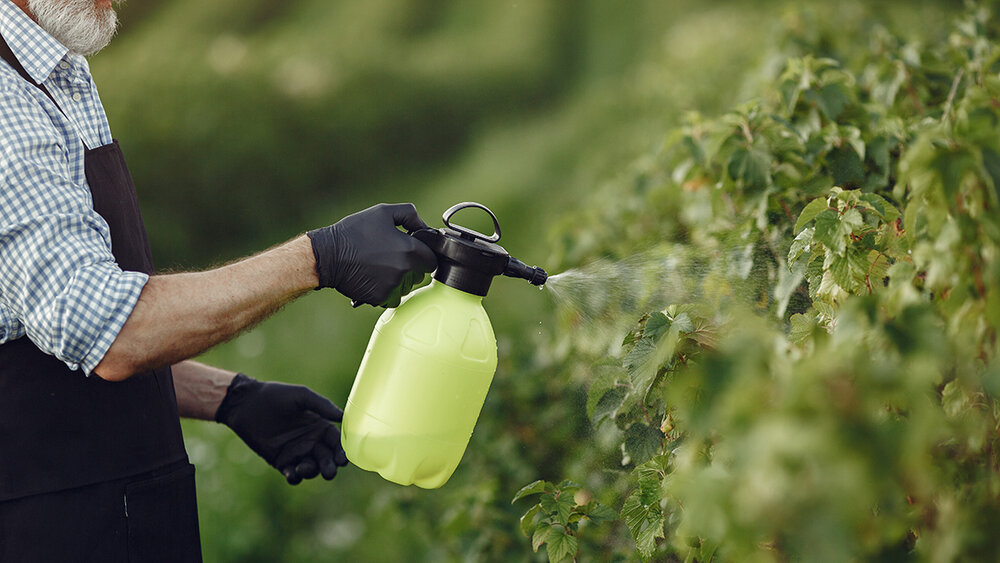Do You Rinse Off Insecticidal Soap On Plants?
Insecticidal soap is a popular and effective solution for controlling pests on plants in a safe and environmentally friendly manner. However, once you've applied insecticidal soap to your plants, you may wonder whether or not it needs to be rinsed off.
What Is Insecticidal Soap?
Insecticidal soap is an organic alternative to traditional synthetic pesticides that can be used to protect your garden from soft-bodied pests. This natural solution consists of potassium salts with fattyacids that are derived from plant oils, making it an entirely holistic option.
The primary benefit to liquid soap sprays is that they target specific insect pests and have minimal impact on beneficial insects like ladybugs or bees.
Insecticidal soap is most effective against specific types of insect pests including aphids and mealybugs, which often wreak havoc on gardens if left untreated.
A single application has the power to kill many of these pesky bugs, although you will need to reapply if population levels start increasing again.
Additionally, many people prefer this soaps for the peace of mind knowing there are no harsh chemicals coming in contact with the plants or soil. All in all, this type of product should be a key staple in any all-natural, organic garden backyard!
How Long Does It Take Insecticidal Soap To Work?

Insecticidal soap is an effective, non-toxic way to quickly eliminate a variety of pests, such as aphids, mites and whiteflies. As soon as the bug comes into contact with the solution, it will die.
It isn't necessary to apply it multiple times to make an impact on your plants, unless you're dealing with a particularly severe infestation. In most cases, simply applying the product once can be enough to make a noticeable difference after just 24 hours.
When combating larger infestations of certain insects, it may take several applications of insecticidal soap to completely rid them from your plants.
It's best to simply apply it regularly for several weeks in order to ensure that all of the pest have been thoroughly killed off.
You may need to reapply the product every three days for optimal results during this time period. However, even if you don't use the product faithfully for this time frame, you'll still see positive results after one application within 24 hours of using it.
How Often Should You Use Insecticidal Soap?
Insecticidal soaps are a great way to get rid of pesky pests on your plants, like aphids and other common garden pests. It’s important to know when to use it and how often it should be used, however.
The best approach is to use the soap only when you notice a pest or disease problem that needs controlling.
Using it too frequently can be damaging and cause damage to the leaves of plants that might already be under stress from not enough light, water or fertilizer.
Insecticidal soaps are generally safe for use less than once a week. That said, it's better to be conservative in your applications so as not to put any undue strain on your indoor plants that may cause further damage.
Always read and understand the label of every product you purchase, follow all safety precautions closely, and never apply any type of pesticide without consulting a local gardening expert first.
Taking these precautions will help you ensure that your plants remain healthy and thrive during their growing cycle.
How To Use Insecticidal Soap For Different Plant Problems
Natural insecticide sprays for plants effectively eliminate bugs through multiple mechanisms. Firstly, the soap dries out the insects' exoskeletons, leading to the collapse of their cells.
Additionally, the oils present in the soap interfere with the bugs' breathing process, ultimately leading to suffocation.
Which Pests Can Be Controlled With Insecticidal Soap?
Insecticidal soap is a useful and effective way of controlling some common garden pests. By using an insecticide with a small percentage of soap, you can kill insects by suffocating them on contact.
The active ingredients used in this type of insecticide come from plants such as citronella or peppermint, which are known to have an irritating effect on certain insects.
Designs vary but generally these products contain fatty acids which act as a surfactant that quickly coat and smother the pests.
How To Apply Insecticidal Soap To Control Pests
Insecticidal soap is widely used in organic gardening as an effective, non-toxic way to control pests. When correctly applied, it can take out soft-bodied insects such as aphids and spider mites with astonishing speed.
To apply the soap correctly, you need a garden sprayer to ensure uniform coverage of your plants. Many pre-made insecticides are available for purchase and all you have to do is mix them with warm water according to the directions on the package and apply it directly onto your plants.
How To Stay Safe While Applying Insecticidal Soap
First and foremost, remember that insecticidal soaps can still potentially injure some plants, especially if you add oil to the mix.
Extreme caution should be exercised when applying this product to a entire plant for the first time – apply it only to a small portion of it first and wait 24 hours before proceeding further with any large scale activities or treating the entire thing at once.
That way, if any adverse side effects – such as wrinkling, spotting or browning – occur after initially applied, you can rest assured knowing that you’ve taken steps to limit their potential spread by spot treating with caution.
In addition, they should always be kept away from children and animals while in use in order to avoid unwanted contact.
Do You Need To Rinse Off Insecticidal Soap?

Rinsing off the soap will not necessarily disable its efficacy but may be beneficial in some cases. For starters, any honeydew residue or sugary secretions left by insects can prevent insecticidal soaps from penetrating the waxy coating of houseplant pests.
Rinsing off these leftover substances might increase the soap's efficiency on subsequent applications. Keep in mind though that timing plays a key role here —It's best not to rinse right away after application as the product must remain wet for a few minutes in order for it to be effective in killing common pests.
After several applications have been made, then you can go ahead and thoroughly rinse your plants with soft water.
Final Thoughts On How To Use Insecticidal Soap On Plants
Insecticidal soap is one of the most effective, organic treatments for common garden pests and diseases. For indoor or outdoor growing this remedy can eliminate plant pests, such as aphids, spider mites, mealybugs and whiteflies - without hazardous chemicals.
The way it works is by suffocating small insects that are sensitive to contact with fatty acids or soaps. Insecticidal soaps don’t affect useful insects like lady beetles and bees that help to pollinate plants.
It’s important to always read the label before using any insecticidal soap on your sensitive plants because not all soaps are created equal - some have higher concentrations of active ingredients than other products available on Canada Grow Supplies.









